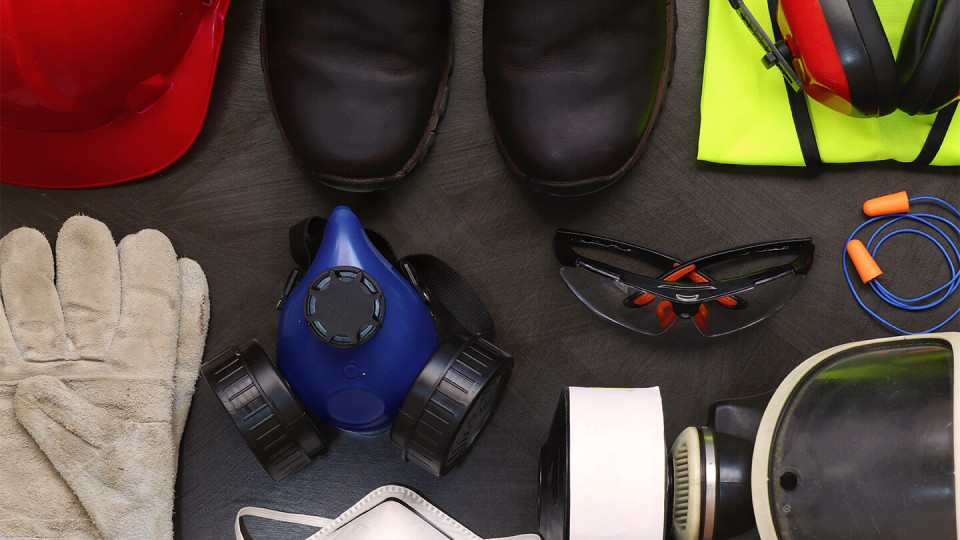If you have experienced a personal injury, you might be eligible for compensation, regardless of whether the incident occurred in the UK or abroad, at work or in public. Our legal experts are here to help you get the rehabilitation, compensation and support you need.

Personal injury
The importance of PPE at work
Personal Protective Equipment (PPE) is defined in the Personal Protective Equipment at Work Regulations 1992 as: “All equipment (including clothing affording protection against the weather) which is intended to be worn or held by a person at work which protects them against one or more risks to their health and safety.”
PPE can include safety helmets and hard hats, breathing apparatus, protective footwear and gloves, safety harnesses or life jackets, ear, eye and full-face protection, and high-visibility, flame-retardant, anti-static, chain mail or chemically impermeable protective clothing.
The PPE at Work Regulations require employers to provide, replace and pay for PPE and ensure all equipment is properly assessed and fit for purpose, provided with adequate usage instructions, stored and maintained properly, and used correctly by employees.
Why is PPE so important?
PPE is an essential factor in protecting employees from work-related accidents and illnesses. Before selecting PPE, all potential workplace hazards must be identified to ensure the correct equipment is selected to protect against them.
Hazards can include falling or flying objects, dangerous machinery, harmful gases and fumes, fire, toxic, irritant or corrosive materials or liquids, contaminated dust and air, radiation, vehicles, oxygen-depleted environments, heavy loads, electric shocks, temperature extremes and infections and industrial diseases.
Maintaining a safe work environment means providing the correct safety procedures, training, and supervision to encourage employees to work safely and responsibly. Important factors to consider when selecting PPE include:
- Is the equipment CE marked and fit for purpose or does it need repairing or replacing?
- Has the wearer/manager/instructor been properly trained in correct usage?
- Does the equipment present any hindrance to the wearer or prevent them from effectively communicating?
- Does the equipment suit the wearer’s size and weight and if not, can it be properly adjusted?
- Does the equipment take account of the environmental conditions and is it appropriate for the particular task at hand?
- If more than one item of PPE is worn, is the equipment compatible?
When do the PPE at work regulations not apply?
The regulations do not apply when specific safety requirements are detailed in the following five regulations:
- The Control of Lead at Work Regulations 2002
- The Ionising Radiations Regulations 1999
- The Control of Asbestos Regulations 2012
- The Control of Substances Hazardous to Health Regulations 2002 (COSHH)
Safety at work should be every employer’s main priority and it is crucial companies understand the vital role PPE plays in protecting employees from hazards and the risk of serious injuries at work.
The importance of using PPE in the workplace can never be underestimated as the consequences of companies failing to provide any or faulty personal protective equipment can be devastating.
How we can help
Slater and Gordon have experts in personal injury who deal with accident at work claims on a No Win No Fee basis. For a free consultation call us on 0330 041 5869 or contact us online and we’ll be happy to help you.
All information was correct at the time of publication.




For those who suffer from a head or brain injury, there can be terrible consequences for them and their families. You therefore need legal advice from someone with a vast amount of experience in this field of law Slater and Gordon is one of the UK's leading head and brain personal injury firms.